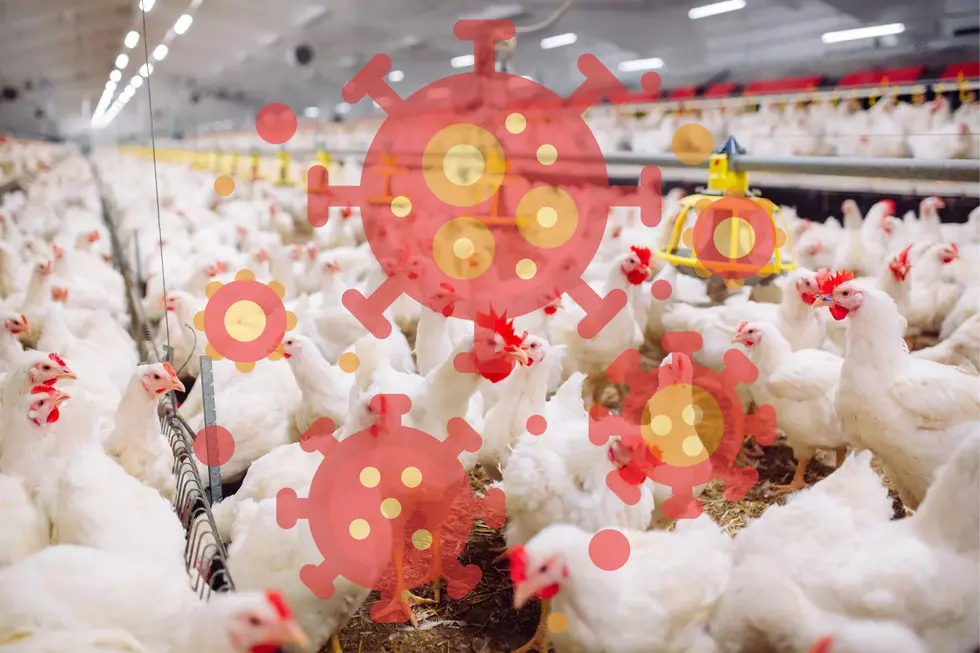
MDARD Reports Avian Flu Outbreak At Poultry Farm In Michigan
The Michigan Department of Agricultural and Rural Development (MDARD) announced Tuesday that avian flu has been detected at a commercial poultry farm in Ionia County, Michigan.
The farm has since been quarantined to help stop the spread of the disease, and "the birds will be depopulated."
What is Avian Flu?
The virus is generally spread from wild birds to domestic birds and it is listed as a "Class A flu".
In birds, the virus presents very much like the flu in humans. Symptoms include fever, lethargy, loss of appetite, coughing, swelling, and reduced egg production.
If humans are infected, they can present with symptoms that range from those of the common flu to pneumonia that results in hospitalization.
Is There a Risk of Bird Flu Transmitting to Humans in Michigan?
According to a release from MDARD, the risk to the health of the public related to this outbreak is low. No "bird products" from the farm will be introduced into the food supply.
It is unclear which poultry farm in Ionia County was affected.
READ MORE: Is Michigan's Deer Population About to Be Vaccinated?
Precautions to Take to Avoid Bird Flu Infection
MDARD is taking this opportunity to remind those who have birds, whether it's a large or small flock, to take preventative measures to ensure that their flock does not become infected during migratory bird season.
Those measures include the following:
- Limit or fully prevent contact between domestic birds and wild birds by bringing domestic birds indoors or fully enclosing their outdoor area.
- If you handle your birds, be sure to wash your hands before and after. It's also recommended to wash your hands if you're moving from coop to coop.
- Disinfect your boots, gloves, etc. when moving between coops.
- Keep feed secure, so there is no contact between the feed and wild birds or rodents.
Read the full list of precautionary measures on MDARD's website.
Update: More Animals Added to Michigan's Year-Round Hunting List
Gallery Credit: Lauren Gordon



